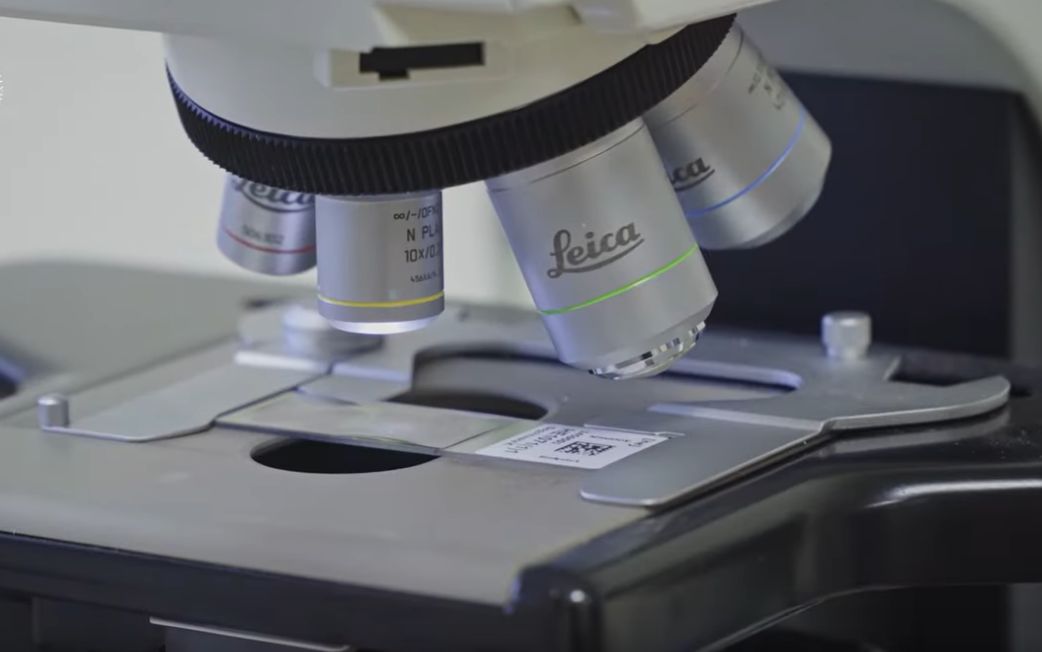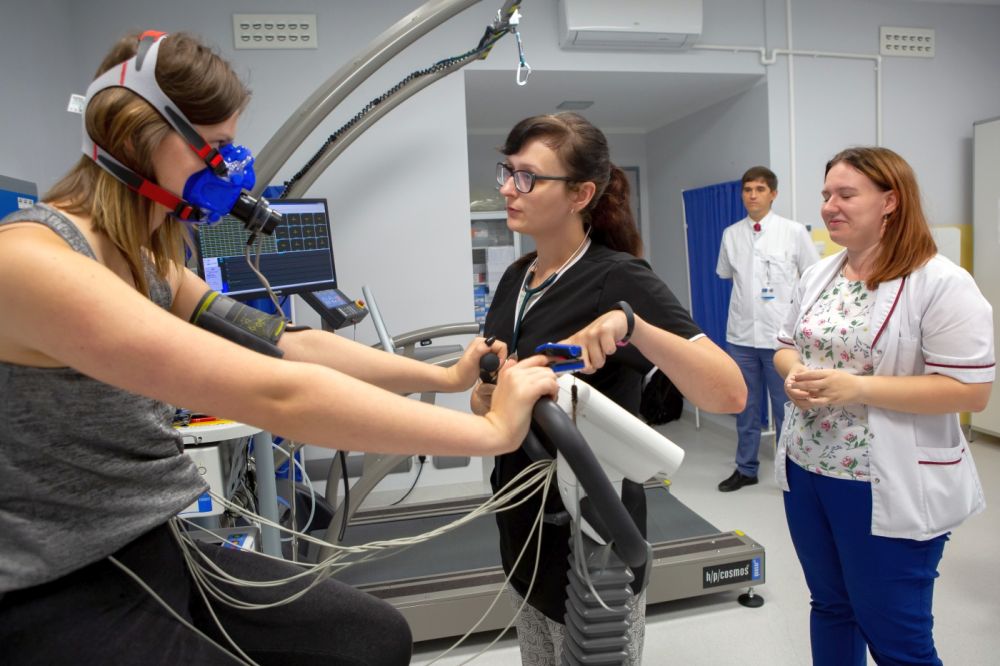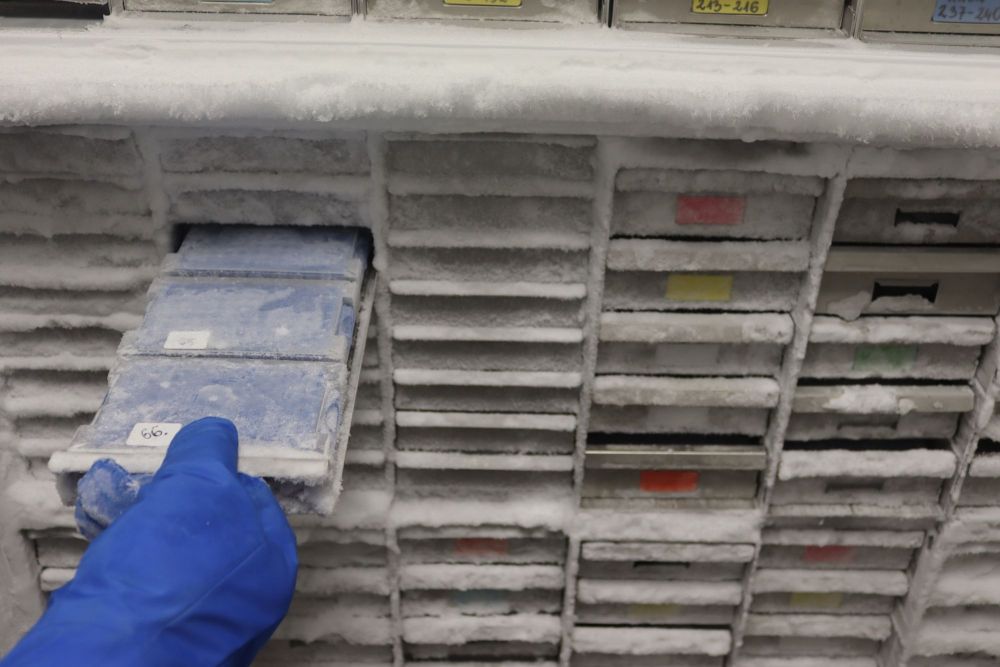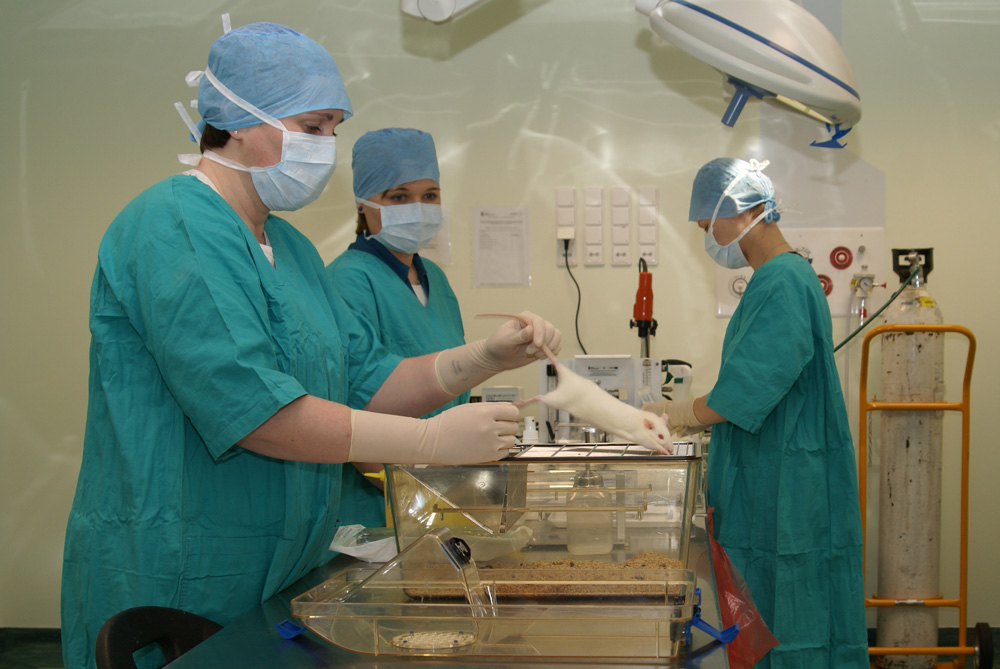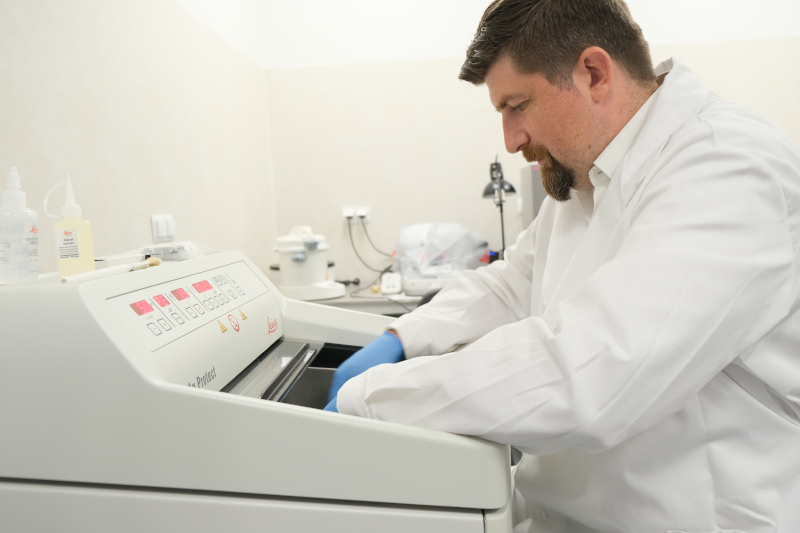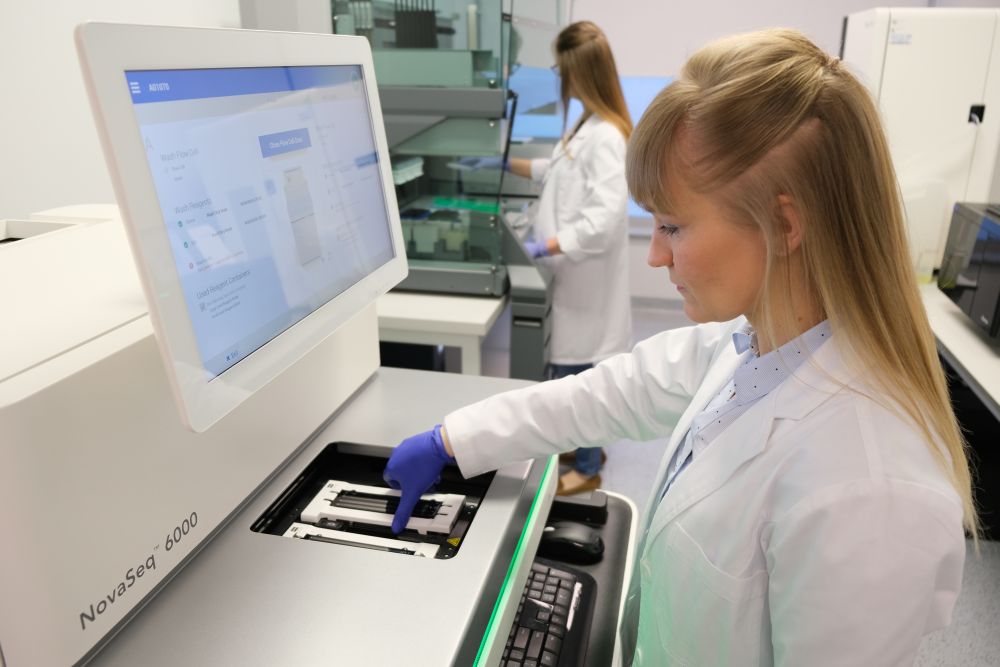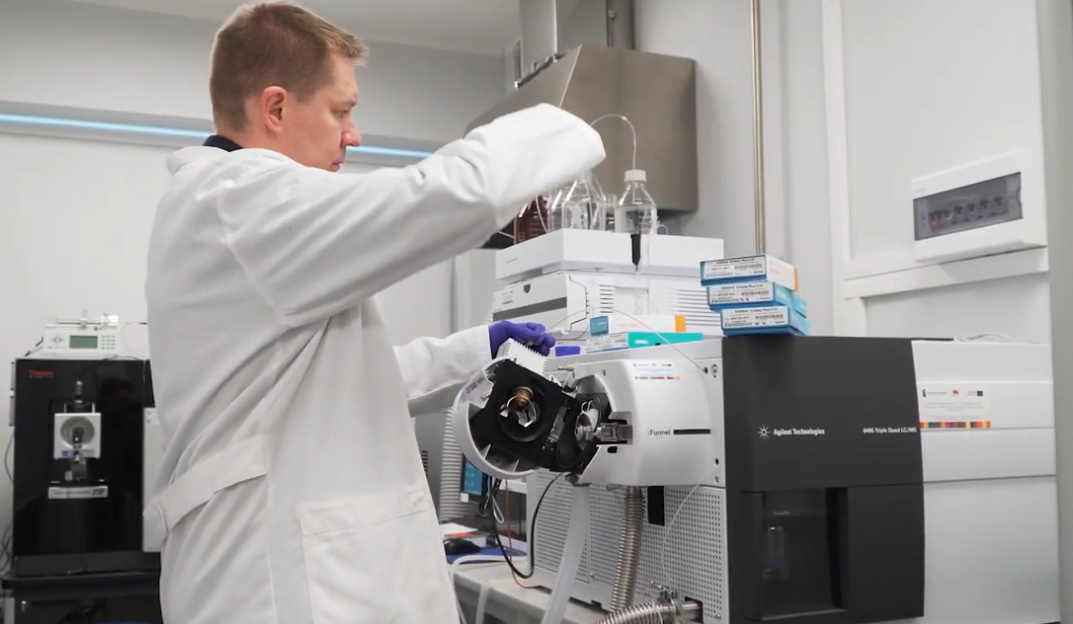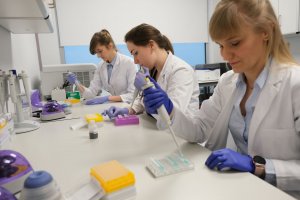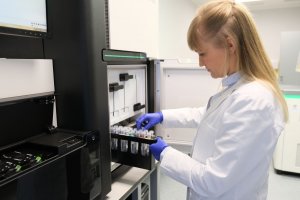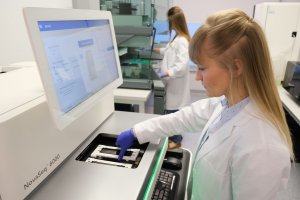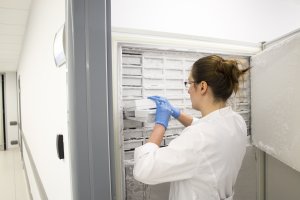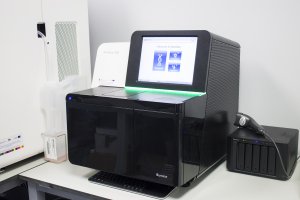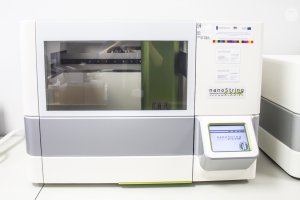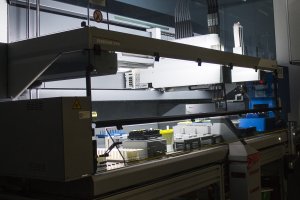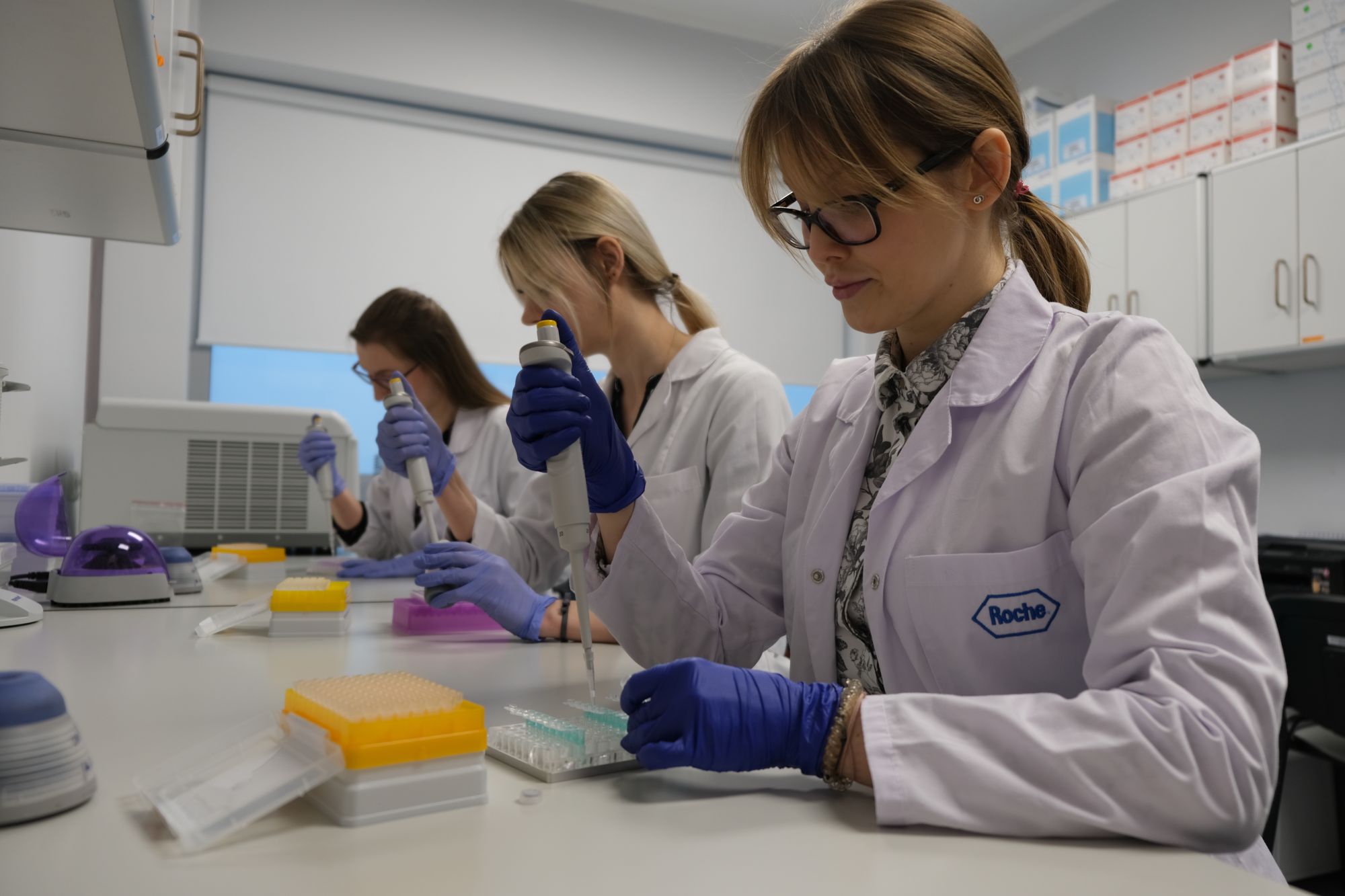
The Laboratory of Genomics and Epigenetic Analysis (LGiAE) of the Clinical Research Centre of the Medical University of Białystok focuses mainly on research on civilisation diseases such as cancer, diabetes or obesity.
It performs a wide range of analyses based on DNA sequencing using Next Generation Sequencing (NGS) methods. Next-generation sequencing encompasses all innovative high-throughput sequencing technologies in a single experiment cycle. NGS technologies are based on parallel sequencing of fragments of genetic material. Therefore, they make DNA and RNA sequencing much faster and cheaper (several orders of magnitude) than the previously used Sanger methods. Amongst other things, MUB Clinical Research Centre performs genetic and somatic variation tests using whole-genome (WGS) and whole-exome (WES) sequencing methods, transcriptomic analyses in which gene expression (total RNA-seq, mRNA-seq), short non-coding RNA (smallRNA-Seq), methylme, changes in DNA methylation profile and level (RRBS) as well as single cell sequencing using the 10x Genomics system (USA) are evaluated. In addition, the Laboratory of Genomics and Epigenetic Analyses performs genotyping and analysis of methylation sequences using microarray technology (iScan, Illumina, USA) and also deals with miRNA profiling in body fluids, which is called liquid biopsy using the NanoString system (USA).
The team consists of highly qualified biotechnologists and molecular biologists. Due to the large amount of data produced using large-scale methods, the Laboratory actively cooperates with the Centre for Bioinformatics and Data Analysis of the Medical University of Bialystok. It provides support in both statistical analysis of results and bioinformatics analysis, requiring the simultaneous use of groups of servers with appropriate computing power.
The laboratory sequencing (DNA sequencing – is a molecular biology technique that reads the order of nucleotides in a DNA molecule) using the following Illumina systems (USA): NovaSeq X Plus, NovaSeq 6000, NextSeq 500 and MiSeq. The NovaSeq X Plus system is the highest throughput sequencer in the world, enabling simultaneous sequencing of up to 128 genomes, with a standard coverage of approx. 30x. Thanks to this, the cost of analysis is significantly reduced compared to other systems available on the market. Our systems provide high scalability and flexibility, and are therefore suitable for applications that require data analysis. In addition, the laboratory has two NGS STAR pipetting stations from Hamilton (USA) to automate the DNA isolation procedure and prepare NGS libraries. Working with workstations provides excellent accuracy, precision and repeatability, as well as reduced sample preparation time. The laboratory is also equipped with a full range of so-called additional devices necessary during DNA isolation, library construction or quality control, i.e. TapeStation 2200 (Agilent, USA), Qubit (ThermoFisher Scientific, USA), PippinHT (Sage Science, USA), LightCycler 480 (Roche, Switzerland), thermal cyclers, laminar chambers.
Whole exome sequencing (WES) performed by the Laboratory of Genomics and Epigenetic Analysis MUB Clinical Research Centre of approx. 1400 patients infected with the SARS-CoV-2 virus was used to search for genetic factors affecting differences in the course of COVID-19 disease in different people. The results of this research have also been published in the form of a scientific article: "Implementation of the web-based calculator estimating odds ratio of severe COVID-19 for unvaccinated individuals in a country with high coronavirus-related death toll"
The project's model for predicting the odds ratio for severe COVID-19 based on age, gender and BMI data has been made available to patients in the form of a calculator by the Ministry of Health on the pacjent.gov
(https://pacjent.gov.pl/aktualnosc/sprawdz-jak-mozesz-przechodzic-covid-19 ).
The Laboratory of Genomics and Epigenetic Analysis has quality certificates obtained during evaluation by the European Network for Quality Control of Genetic Research (EMQN) and the Genomic Quality Assessment Agency, in the field of "Next Generation Sequencing EQA (Germline)". The Laboratory received the highest rating, and the sequential data generated by the Laboratory obtained the highest values.
The laboratory has become the highest classified unit out of nearly 130 centres from around the world that perform tests in the Illumina NovaSeq 6000 system!
This success is the culmination of many years of hard work that the entire laboratory team does.
The Laboratory of Genomics and Epigenetic Analyses, MUB Clinical Research Centre also provides DNA sequencing services using NGS technology for external research centers and commercial companies through a dedicated entity Genomika Polska sp. z. o.o. (https://genomikapolska.pl). Currently, Genomika Polska and MUB Clinical Research Centre offer services based on WES, WGS and RNA-seq methods and using the NanoString platform, as commissioned works for the needs of scientific and diagnostic research for clients from all over Poland. The MUB Clinical Research Centre laboratory cooperates with leading research centres in the USA and Europe.
CONTACT:
dr n. chem. inż. Magdalena Niemira
Laboratory of Genomics and Epigenetic Analysis (LGiAE), Clinical Research Centre, MUB
e-mail: genom@umb.edu.pl
tel.: +48 85 686 52 72


